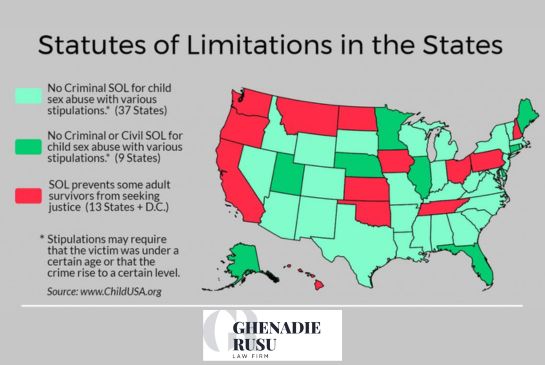If you’ve heard the term “DACA status” mentioned in conversations, news articles, or political discussions, you may be wondering what it actually means. DACA, an acronym for Deferred Action for Childhood Arrivals, is a program that provides temporary relief from deportation for certain undocumented individuals who arrived in the United States as children. In this article, we will delve into the details of DACA status, its eligibility criteria, benefits, application process, and its impact on individuals and communities.
The Basics of DACA
DACA status is a special immigration status that grants certain benefits to eligible individuals. It was introduced in 2012 by the Obama administration to protect individuals who were brought to the United States as children and have since grown up in the country. To be eligible for DACA, individuals must meet specific criteria, including arriving in the U.S. before the age of 16, being physically present in the U.S., and having a clean criminal record.
Once approved, DACA recipients are granted temporary relief from deportation and may receive work authorization, social security numbers, and access to certain benefits. It is important to note that DACA is not a pathway to citizenship, but it provides a level of protection and opportunities for undocumented individuals who meet the requirements.
How to Apply for DACA
Applying for DACA involves a thorough process that requires gathering relevant documents and submitting the application to the United States Citizenship and Immigration Services (USCIS). The application must include personal information, evidence of meeting the eligibility criteria, educational records, and other supporting documents.
It is crucial to provide accurate and detailed information, as any discrepancies or omissions can lead to delays or potential rejection of the application. Additionally, there are filing fees associated with the DACA application, although fee waivers are available for certain individuals who meet specific criteria.
Renewing DACA Status
DACA status is not permanent, and recipients must renew their status periodically to maintain their benefits. The renewal process involves submitting a new application along with updated information and supporting documents. It is important to submit the renewal application on time to avoid a lapse in DACA benefits and protection.
The timeline for renewal varies, and it is recommended to start the renewal process well in advance to ensure timely processing. Changes in eligibility criteria or legal requirements may impact the renewal process, and it is essential for DACA recipients to stay informed about any updates or changes that may affect their status.
Rights and Limitations of DACA Recipients
While DACA provides temporary relief from deportation and work authorization, it is important to understand the rights and limitations associated with DACA status. DACA recipients are granted the ability to legally work in the United States, which opens up employment opportunities and the ability to contribute to the economyin a meaningful way. They can obtain a social security number and apply for a driver’s license in many states, allowing for increased mobility and independence.
However, it is essential to note that DACA does not provide a path to citizenship or permanent residency. DACA recipients do not have access to federal financial aid for higher education, and their eligibility for state-level benefits may vary depending on the state they reside in. Additionally, DACA recipients have certain travel limitations and must obtain advance parole from USCIS before leaving the country.
DACA and Immigration Reform
DACA has been at the center of heated political debates and discussions surrounding immigration reform. The program has faced legal challenges and uncertainty over the years. It is crucial for DACA recipients and advocates to stay informed about the legislative history of DACA and any potential changes or reforms that may affect the program’s future.
The future of DACA remains uncertain, but there have been ongoing efforts to provide a pathway to citizenship for DACA recipients through comprehensive immigration reform. It is important for individuals interested in DACA to closely follow the developments and engage in advocacy efforts to support the program and its beneficiaries.
Common Misconceptions about DACA
There are several misconceptions and myths surrounding DACA that can lead to misunderstandings and misinformation. It is essential to separate fact from fiction to have a clear understanding of DACA and its implications. Some common misconceptions include:
- DACA recipients are criminals: DACA recipients undergo rigorous background checks and must have a clean criminal record to be eligible for the program. They are law-abiding individuals contributing to their communities.
- DACA recipients take away jobs: DACA recipients have work authorization and contribute to the economy by paying taxes and filling essential roles in various industries.
- DACA recipients receive free benefits: DACA recipients are not eligible for federal benefits such as food stamps or welfare programs. They do not have access to federal financial aid for higher education.
- DACA is permanent: DACA is a temporary program and requires regular renewal to maintain status and benefits.
By dispelling these misconceptions, we can foster a more accurate and informed understanding of DACA and its impact.
The Impact of DACA on Individuals and Communities
DACA has had a profound impact on the lives of individuals who have been granted the status. Many DACA recipients have shared their personal stories and testimonials, highlighting how DACA has provided them with stability, educational opportunities, and the ability to pursue their dreams. These individuals contribute to their communities, both economically and socially, and are integral parts of the fabric of American society.
Economically, DACA recipients have been shown to contribute billions of dollars to the U.S. economy through taxes, job creation, and entrepreneurship. They are often active members of their communities, volunteering and participating in civic engagement. The positive impact of DACA on individuals and communities cannot be overstated.
Support and Resources for DACA Recipients
DACA recipients have access to various support systems and resources to help navigate the challenges they may face. Legal assistance is crucial, as the immigration process can be complex and ever-changing. Many organizations and nonprofits provide free or low-cost legal services specifically tailored to DACA recipients.
Advocacy organizations also play a significant role in providing support, raising awareness, and advocating for the rights and well-being of DACA recipients. These organizations often offer educational resources, community events, and opportunities for DACA recipients to connect with one another.
Frequently Asked Questions (FAQs)
Q: Can DACA recipients become U.S. citizens? A: DACA does not provide a direct pathway to citizenship. However, efforts for comprehensive immigration reform may provide a potential path to citizenship for DACA recipients.
Q: Can DACA recipients travel outside the United States? A: DACA recipients can travel outside the U.S., but they need to obtain advance parole from USCIS before leaving thecountry to ensure they can reenter legally.
Q: Can DACA recipients apply for federal financial aid for college? A: DACA recipients are not eligible for federal financial aid. However, they may be eligible for state-level financial aid or scholarships offered by private organizations.
Q: Can DACA recipients be deported? A: DACA provides temporary relief from deportation, but it is not a guarantee against deportation. If a DACA recipient violates the program’s terms or engages in criminal activity, they may be subject to deportation.
Q: Can DACA recipients sponsor family members for immigration benefits? A: DACA recipients themselves cannot sponsor family members for immigration benefits. However, other pathways to immigration may be available for family members.
In conclusion, understanding DACA status is crucial for individuals seeking protection and opportunities in the United States. DACA provides temporary relief from deportation and work authorization, but it is important to stay informed about the program’s requirements, application process, and potential changes. DACA recipients contribute to their communities and strive to build a better future for themselves and their families. By dispelling misconceptions and providing support, we can create a more inclusive society that values the contributions of all individuals, regardless of their immigration status.
Please contact the Law Office of Ghenadie Rusu for more information about DACA.












